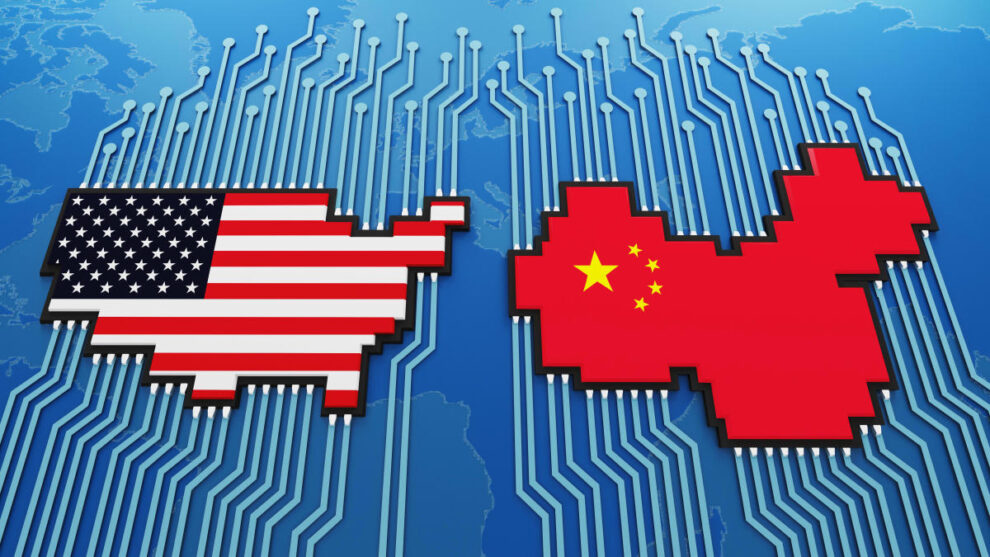United States-China semiconductor tensions are escalating as the US considers banning Chinese-made routers present in millions of American homes. Rhodium Group director Reva Goujon joins Market Domination to discuss the growing divide. Goujon highlights recent policy initiatives like the Routers Act and the US Commerce Department's ICTS (Information and Communications Technology and Services) controls, which aim to remove Chinese components from infrastructure due to increased data and cybersecurity concerns. She notes that companies like TP-Link have become deeply embedded in US infrastructure, making this a complex challenge. "What the US is doing is it's saying that 'look, there's a number of toolmakers out there that still want to feed into the Chinese chip market,'" Goujon explains. She describes a new "single chip de minimis" provision that would extend US restrictions to any factory worldwide using even one US chip. "So the US is basically telling partners 'do the right thing, align with us or else you're going to be subject to US law and compliance.'" However, Goujon cautions that the immediate impact may be limited: "The issue is that China has been able to stockpile an enormous amount of equipment, especially over the past one and a half years... and so it may take a while to even see the effects of export controls biting." To watch more expert insights and analysis on the latest market action, check out more Market Domination Overtime here. This post was written by Angel Smith Read More...

United States-China semiconductor tensions are escalating as the US considers banning Chinese-made routers present in millions of American homes. Rhodium Group director Reva Goujon joins Market Domination to discuss the growing divide.
Goujon highlights recent policy initiatives like the Routers Act and the US Commerce Department’s ICTS (Information and Communications Technology and Services) controls, which aim to remove Chinese components from infrastructure due to increased data and cybersecurity concerns. She notes that companies like TP-Link have become deeply embedded in US infrastructure, making this a complex challenge.
“What the US is doing is it’s saying that ‘look, there’s a number of toolmakers out there that still want to feed into the Chinese chip market,'” Goujon explains. She describes a new “single chip de minimis” provision that would extend US restrictions to any factory worldwide using even one US chip. “So the US is basically telling partners ‘do the right thing, align with us or else you’re going to be subject to US law and compliance.'”
However, Goujon cautions that the immediate impact may be limited: “The issue is that China has been able to stockpile an enormous amount of equipment, especially over the past one and a half years… and so it may take a while to even see the effects of export controls biting.”
To watch more expert insights and analysis on the latest market action, check out more Market Domination Overtime here.
This post was written by Angel Smith
Read More










